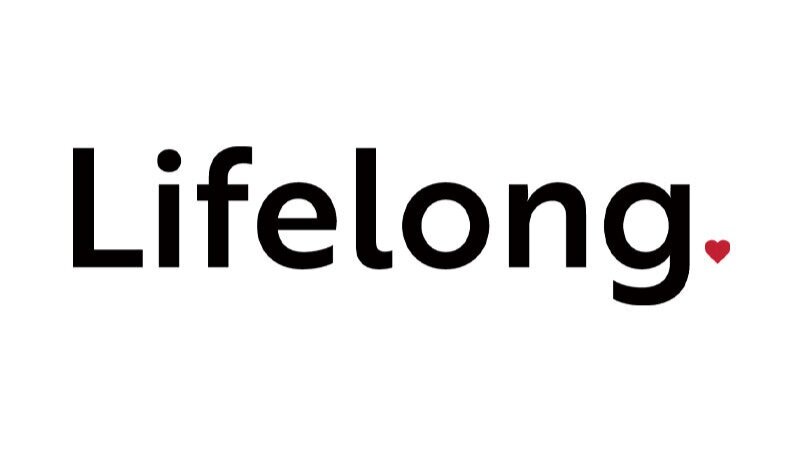A Q&A with Noelle Summers, Emergency Housing Case Manager
We’re celebrating the resilience of our community and that includes our Lifelong staff. We recently chatted with Noelle Summers, Emergency Housing Case Manager, on her work, the resilience she sees in the people she serves, and what Pride means to her.
Q: What is your role at Lifelong?
A: I’m the Emergency Housing Case Manager and I’ve been in this role since last August when I joined Lifelong. I work with people who are living with HIV and experiencing homelessness by helping them get into shelter, then figuring out the next steps toward permanent, sustainable housing.
Q: How does your work support the LGBTQ+ community?
A: All the work that I have done in this role has ended up focusing on the LGBTQ+ community more specifically than other communities in the general Seattle area. People who identify as LGBTQ+ experience a lot of oppression because of their identities, so they end up turning to places like Lifelong more than other people do. I see this reality in my caseload where at least 70% of the people I help identify as LGBTQ+.
Q: How has your work changed to support the LGBTQ+ community since you started working in this field?
A: When I first started this role in August, I was occasionally going to see clients in person during my office hours at some local shelters, but as COVID-19 cases increased in the winter, I had to pull back from being at those shelters. I work with people who are living with HIV and immunocompromised, so going from shelter to shelter could put my clients at higher risk. Unfortunately, I think social work tends to be the most successful in person to build those critical relationships. It’s really hard to do over the phone. I definitely saw a lot of isolation and despair over those winter months when our services were more virtual. Now that things are opening up though, we are back onsite at shelters and moving a lot of people into housing and having more interactions face-to-face again, which has been so much better for our clients.
Q: How can the community support your program right now?
A: The statewide eviction ban is going to expire at the end of June and Governor Inslee still hasn’t acted to extend the ban. Just because things are opening up more, does not necessarily mean that people are able to go back to work or pay their rent every month. Luckily, it is so easy for our supporters and friends to advocate for housing justice! You can call the Governor or local representatives and urge them to extend the eviction ban, or you can take to social media with #JuneTooSoon. Your LGBTQ+ neighbors need your help!
Q: How have you witnessed housing disparities among the LGBTQ+ community?
A: There’s a couple of different ways that this happens. There’s direct discrimination, when landlords refuse to rent to people with LGBTQ+ identities, which is illegal in Seattle and also nationally, but that only recently came about in 2021 when the Biden Administration expanded the Fair Housing Act to include sexual orientation. It used to be totally legal for LGBTQ+ people to be evicted or not rented to, and for realtors to not work with LGBTQ+ people and couples. Another way that LGBTQ+ people face housing disparities is that they are more likely to experience poverty, which means they are less likely to have access to quality housing and the ability to pay their rent. All of this looks different depending on your identity too: transgender people, queer people of color, and bisexual cisgender women experience the highest rates of poverty, which also means that they experience the highest rates of instability with housing.
Q: How have you seen resiliency, especially in the face of these disparities, through your program or personal life?
A: I see resiliency in the fact that people continue to advocate for themselves to access the services that they need - people haven’t given up. They are taking the steps to get housing, and it’s a privilege every day to work with these folks and hear their stories. It’s so hard to exist in this world as someone without housing and they continue to show up, survive, and thrive in defiance of the systemic oppression they experience.
Q: What does Pride mean to the people you help at Lifelong?
A: I have people in their 60s who see this as a time of mourning because they lived through the HIV epidemic in the 80s and 90s and they lost so many loved ones. So I think Pride is partially a reflection that they are still here but so many others are not. It is also a time for them to recognize their resiliency and how they are still here existing and fighting in this world, and telling their stories. Then I also have younger people on my caseload who are just so excited for Pride Month because it’s a time to celebrate their community and the fact that they are here and queer, together with their partners, friends, and families.
Q: What does Pride mean to you?
A: I think it’s a time to reflect on my identity and explore who I am as a person. I have become more open about who I am and have let more people into that identity over the years, and it’s been helpful to use my memories of Pride over time as a way to mark that growth. I have also been reflecting on who I see at Pride and who I don’t, and doing the work to unpack my whiteness and privileges - how can I make sure people of different identities and backgrounds feel supported at Pride? All together, we can be stronger and more resilient.

